#St Elizabeth's Church
Text

ℜ𝔲𝔰𝔰𝔦𝔞𝔫 𝔒𝔯𝔱𝔥𝔬𝔡𝔬𝔵 ℭ𝔥𝔲𝔯𝔠𝔥 𝔬𝔣 𝔖𝔞𝔦𝔫𝔱 𝔈𝔩𝔦𝔷𝔞𝔟𝔢𝔱𝔥 𝔦𝔫 𝔚𝔦𝔢𝔰𝔟𝔞𝔡𝔢𝔫
📷 𝔙𝔦𝔱𝔬𝔩𝔡 𝔐𝔲𝔯𝔞𝔱𝔬𝔳
#cathedral#orthodox#architecture#photo#photography#towers#photos#St Elizabeth's Church#Wiesbaden#Germany
49 notes
·
View notes
Text
Cardboard signs
People with cardboard signs, asking for help.
It feels like there are more of them every day.
We’ve all heard stories about scammers. People pretending to be desperate.
But some of those people with cardboard signs really are desperate. Which is why I struggle with this one.
Do I give to the person with the cardboard sign, and risk being scammed?
Or do I not give to them, and risk ignoring someone in need?
I know I’m not alone in struggling with this. And it’s not a new problem. St. Elizabeth of Portugal (today’s saint) faced the same problem when she was working to feed the poor in the 1300’s.
I’m nowhere as holy a person as Elizabeth. But she and I do have one thing in common – in wrestling with this, both of kept coming back to something that Jesus said (which happens to be today’s Gospel).
“I was hungry and you gave me food, I was thirsty and you gave me drink, a stranger and you welcomed me, naked and you clothed me, ill and you cared for me, in prison and you visited me.”
Jesus speaks volumes, both by what He says and by His silence.
Notice what Jesus doesn’t say. Jesus doesn’t say anything about the merits, or the actual need, or the worthiness of the person being helped. Instead, Jesus says this,
“Whatever you did for the least of these brothers of mine, you did for me.”
Translation - the person I help is none other than Jesus.
But what if I watch someone pick them up in a new car?
Maybe they are scammers, off for a nice dinner after a profitable day of begging.
Or maybe, just maybe, someone is giving them a ride to an appointment, so they can get the help they need.
Either way, Jesus’ answer to me is the same.
“Whatever you did for the least of these brothers of mine, you did for me.”
Because, in the end, it never was about them. It’s about me and Jesus.
And how I respond to them is a window into my soul.
Today’s Readings
#Cardboard sign#Scammers#God#Jesus#Catholic#Christian#Church#As you have done it to the least of these#Need#Desperate#St. Elizabeth of Portugal#I was hungry and you gave me food#Moments Before Mass
179 notes
·
View notes
Text

Elisabethkapelle, St. Francis of Assisi Church - Vienna, Austria
#elisabethkapelle#elizabeth chapel#franz von assisi kirche#st. francis of assisi church#kaiserjubiläumskirche#emperor's jubilee church#mexikokirche#mexico church#vienna#wien#austria#österreich#church#historical buildings#art nouveau#art nouveau architecture#art nouveau aesthetic#vienna photography#photography#syna's photography
23 notes
·
View notes
Text
it's a bit hard to identify name trends as such in the past, but the first half of the 1500s definitely had a thomas surge, right? there were so many fucking thomases
#🗡️#though given the dates of birth#i suspect it was more of a late 1400s issue#'what'd you christen your son?'#'thomas! very charming name. my son was born on st thomas's feast day you see'#'what a coincidence! i did the same - was it st thomas aquinas?'#'no agnes it was st thomas becket. honestly you have no standards at all'#'i'm reporting you to king henry for that!'#'who?'#'you know - the new king henry vii'#'...we have a new king?'#'do you ever pay attention mary? he's sooo handsome - i'm well jealous of the queen'#'how d'you know he's handsome? and dare i ask which queen?'#'his coin effigies are just so striking you know? oh and it's elizabeth'#'god's bones this village has enough besses already - your margaret had better not use that name!'#<- imagined dialogue between two village women in 1485 who have just been churched
11 notes
·
View notes
Text
every now and again I think about Eleanor Cobham is buried somewhere in Beaumaris and get really sad about how no one knows where (and that no one but me and maybe 3 other people care).
#there was a fair bit of folklore about her on the isle of man but now it's known she didn't die there it seems to be dropped entirely#and there's. nothing. about her at beaumaris#eleanor cobham#blog#the general consensus from the few who do talk about it seems to be at st mary's and st nicholas's church at beaumaris#but there's no memorial or indication where she might be buried there#given she was buried with 'great cost' (100 marks) it seems like she'd be buried in a high status location#i have wondered if she's in the same vault as sir william beauchamp and his wife elizabeth braybrooke (who were her jailors)#or at least nearby#or in the chapel at beaumaris castle but honestly it seems so strange
3 notes
·
View notes
Text
A week in Helsinki
In September 2022, after a wonderful time at the Sibelius Festival in Lahti, I stayed on in Finland for another week and moved to Helsinki, a place that everyone I know who has been there to told me that I would love it. I did.
I love the way it manages to be a capital city with all the things that I expect from such places – good facilities, interesting buildings, art galleries, a concert hall…

View On WordPress
#Chapel of Silence Helsinki#death of Queen Elizabeth II#Die Walküre#Eero Järnefelt#Finland#Finnish National Opera#Hannu Lintu#Helsinki#Helsinki Central Station#Ivar Thomé#Joachim Bäckström#Johanna Rusanen#Kamppi Chapel Helsinki#kungfu#Liz Truss and Boris Johnson#Oscar Merikanto#Sibelius#St John&039;s Church Helsinki#Stockman Department Store Helsinki#tai-chi#Three Smiths Statue#trams#Valter Thomé#Wagner
3 notes
·
View notes
Text
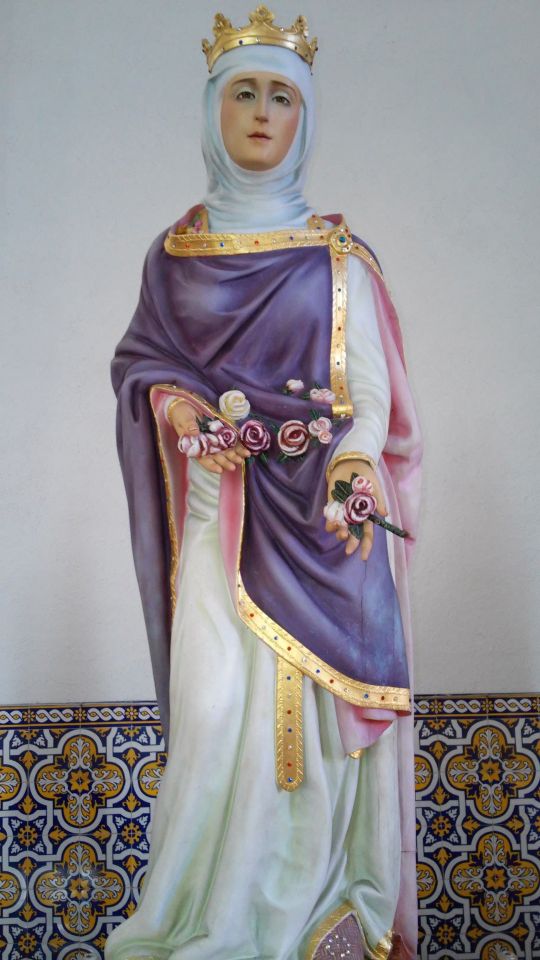
#catholic#roman catholic#catholicism#catholic church#st. elizabeth of portugal#patron saint#female saint#pray for us#statue#july 4th#feast day
7 notes
·
View notes
Text
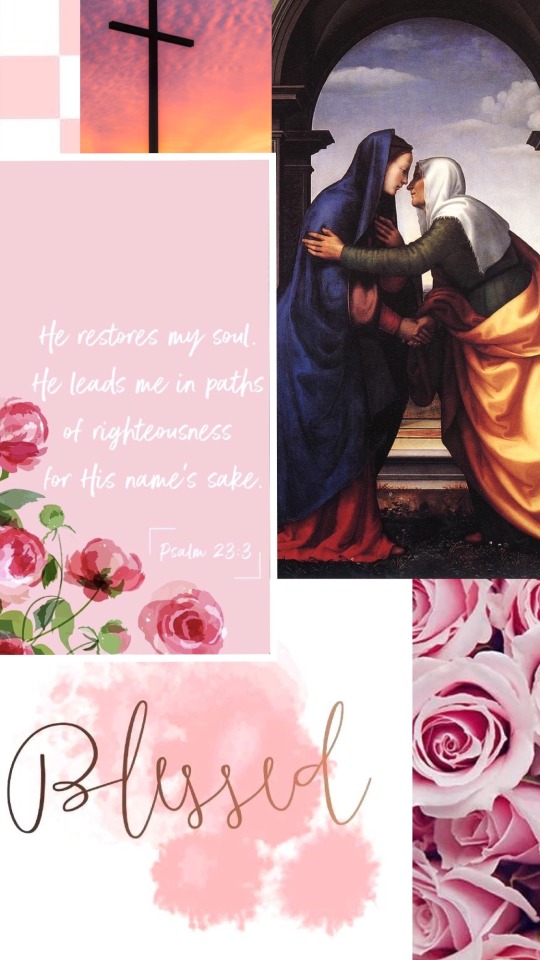
4 notes
·
View notes
Text
Elizabeth Wayte (Lucy) & Stoke Charity
Between rainstorms, we were out in the countryside doing some church-crawling, a grand way to do some ‘medievalling’ when long journeys to castles and houses, most still closed for the winter, are out of the question.
We happened on Stoke Charity by pure accident. I was attracted by the unusual name, which also began ringing a few bells….
The church of St Mary and St Michael is tiny, with a…
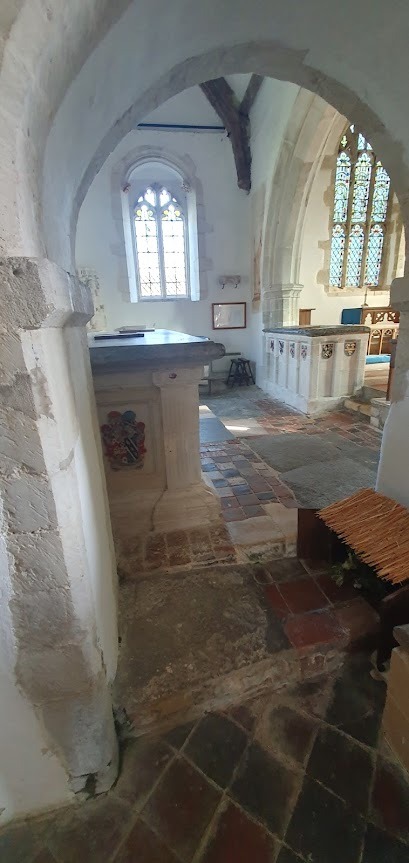
View On WordPress
#Arthur Waite#bigamy#carvings#churches#Edward IV#Elizabeth Lucy#Elizabeth Wydeville#Hampshire#hampton family#Henry Duke of Somerset#Henry VII#John Ashdown-Hill#Lady Eleanor Talbot#mass of st. gregory#Reformation#Robert Stillington#secret marriage#St. Michael#stoke charity#Thomas More#thomas wayte#Titulus Regius#tombs
0 notes
Text
The woman portrayed as very small, Elizabeth Etchingham, died first, in 1452, nearly 30 years before her friend Agnes Oxenbridge, who died in 1480.
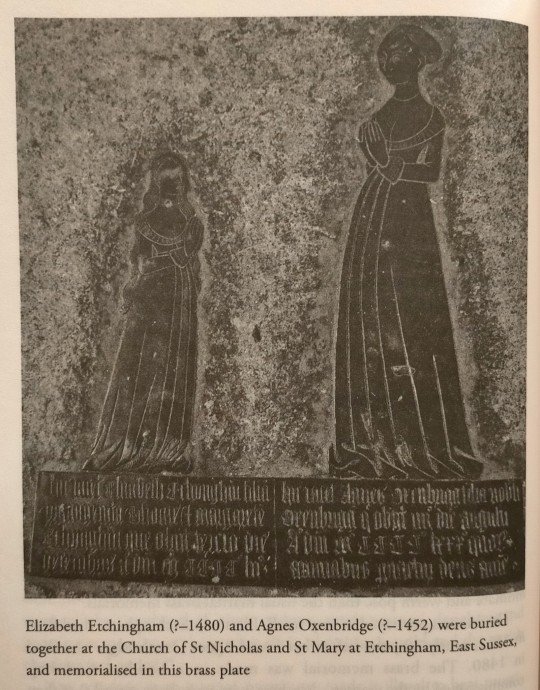
"Normal Women: 900 Years of Making History" - Philippa Gregory
#book quote#normal women#philippa gregory#nonfiction#elizabeth etchingham#death#50s#1450s#agnes oxenbridge#80s#1480s#15th century#and they were roommates#lesbian#church of st nicholas and st mary
0 notes
Text
A rare medieval example of the recognition and celebration of a loving partnership between two women can be seen in the Church of St Nicholas and St Mary at Etchingham in East Sussex.
"Normal Women: 900 Years of Making History" - Philippa Gregory
#book quotes#normal women#philippa gregory#nonfiction#recognition#celebration#loving#partnership#lesbian#church of st nicholas and st mary#st nicholas#st mary#etchingham#east sussex#memorial#elizabeth etchingham#agnes oxenbridge
0 notes
Text
Christian Perseverance through Faith - Advent Meditation on St. Luke 1:1-25
The post reflects on the annunciation to Zechariah, providing insights into the faith and struggle of Zechariah and his wife Elizabeth. Despite their childlessness and societal ridicule, they stayed true to their faith. The post underscores the transforma
A reflection on the Annunciation to Zechariah
In the name of God the Father, Christ Jesus His only begotten Son and the Holy Spirit, One True God. Amen
Dear brothers and sisters in Christ Jesus
The Christians around the world are gearing up for one their most important festivals which celebrates the birth of Jesus Christ in the manger in Bethlehem. The weeks prior to the Feast of the Nativity…

View On WordPress
#Barrenness Journey#Building Virtuous Life#Christian Perseverance#Christian Reflections#Couples Facing Challenges#Divine Announcement#Eight Virtues#Elizabeth#Exemplars of Faith#Faith Amidst Barrenness#Feast of Nativity#featured#Indian Orthodox Church#Love in Faith#Nativity#Orthodox faith#Prayer in Waiting#Preparation for Advent#St. Peter&039;s Epistle#Zechariah
0 notes
Text
Thee and thou
I seem to know the words to a lot of hymns. Especially the ones that come from Protestant churches (I’m a convert, so that’s no surprise).
Actually, I just know a lot of first verses. After that, I need to grab a hymnal.
But the words that I do know? They seem to be the “old” versions. The “thee” and “thou” versions.
When the words have been updated, I find myself scrambling for a hymnal when I hit the first “you.”
I used to think that “thee” and “thou” was formal language. A way of showing respect for God, emphasizing the difference between Creature and creator. But also putting God at arm’s length.
Which makes sense. I learned all the “thee” and “thou” versions in the context of the Protestant tradition I grew up in. Where God was kind of distant.
For the kind and loving (and distant) people of the church that I grew up in, the radical intimacy of the great saints with God made no sense at all.
To them, a prayer like Catherine of Siena’s personal version of the Glory be – which she started with “Glory be to the Father, and to Thee, and to the Holy Ghost” – would have been familiar to the point of being rude.
But for Catherine, who was speaking directly with Jesus (something that my church claimed to prefer but rarely did in practice), referring to someone sitting next to her in the third person would have been rude.
Because to Catherine, Jesus wasn’t off in the distance. Jesus was sitting next to her. And her prayers were conversations between the closest and dearest of friends.
This becomes clear in Catherine’s writings (which are in Latin), where she uses the intimate forms of second-person pronouns when talking about Jesus. Like Latin, many languages have two versions of their second-person pronouns, a formal one and an informal one.
Until about a hundred and fifty years ago, English did as well. Back in the day, if you were writing a letter to someone important or speaking to someone you barely knew, it was “you.”
For close friends and family, for your beloved, it was “thee” and “thou.”
Which – contrary to what I thought – is the real meaning of “thee” and “thou.”
It’s why (in 1846), Elizabeth Barrett Browning writes “How do I love thee? Let me count the ways.” And not “How do I love you?”
It’s not a poetic flourish or a pointless formality. It’s a precision strike.
Because she’s writing to her beloved. And she wants to make sure her beloved knows exactly how she feels. Even before she starts describing her love.
And it’s exactly how God wants us to think about Him.
Because Catherine’s intimacy with God – talking with someone who was sitting next to her, with prayers that were really conversations between the closest and dearest of friends – isn’t something rare. It isn’t something that’s reserved just for the great saints.
It’s something that God is longing to have with you.
And it’s why, in spite of changing tastes in language and style, in the Our Father, in the Hail Mary, in the prayers that so often lead us into our most intimate, most personal prayers, the Church has kept the language of “thee” and “thou.”
So the next time you catch yourself saying “thee” and “thou,” let those words remind you that your closest and dearest of Friends is waiting for you with open arms.
Today’s Gospel
#Intimacy#Prayer#God#Jesus#Catholic#Christian#Church#St. Catherine of Siena#Conversation#Thee#Thou#Elizabeth Barrett Browning#Our Father#Hail Mary#Moments Before Mass
52 notes
·
View notes
Text
God Save the Queen
God Save the Queen
Did you know that song “God Save the Queen (or King)” is the British National Anthem as well as that of all Commonwealth realms? Apparently, it’s one of the world’s best known anthems.
God save our gracious Queen,Long live our noble Queen,God save the Queen!Send her victorious,Happy and glorious,Long to reign over us,God save the Queen!
If a National Anthem has anything to do with longevity, I…

View On WordPress
#anthem#blog#christian#church hopper#city reach church#communion#deacons#god save the queen#holy moments#inspiration#kings and queens#liturgical church#national anthem#preaching#priest#Queen Elizabeth III#St Vincent de Paul#vestments#westminster abbey
0 notes
Photo



St. Elizabeth church - Grabiszyńska St. - Wroclaw, Poland.
#kościół#iglesia#eglise#church#St. Elizabeth#św. Elżbiety#Kirche#Polska#Polonaise#Poland#Pologne#Polen#Polonia
0 notes
Photo
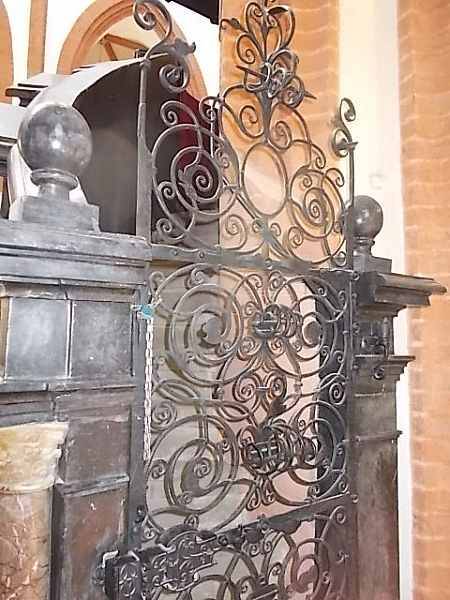

Metal gate in St. Elizabeth basilica, Wroclaw, Poland.
#metal art#sztuka#metaloplastyka#Kunst#arte#St. Elizabeth#basilika#bazylika#basilica#church#Wroclaw#Wrocław#Poland#Polska#art
0 notes